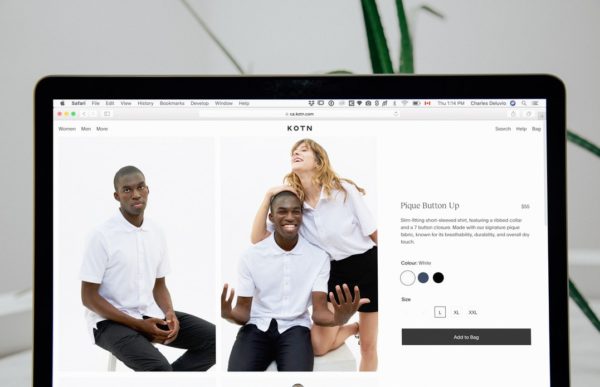
We don’t have to outline surveys to prove to you how much e-commerce and online shopping have advanced. Everyone shops online. Period. We’re not saying that all the shopping is done through your smartphone, but a lot of it is.
Why? Well, for once, it’s often times cheaper. A lot of the stores offer convenient promotions and discounts to their mobile users. You also don’t have to wait in lines, go to the mall, deal with traffic, and whatnot.
Sure, it takes time for your order to be delivered, but it’s not time that you waste – you can do whatever you want to while waiting for the delivery.
Hence, if you’re a startup and you’re selling something online, e-commerce will be a very big part of your business. You can take our word for it.
With this said, we’ve decided it’s high time to take a look at a few tips that you might want to consider if you’re contemplating the development of your e-commerce mobile app.
Tip #1 Intuitive Design
We know that is doesn’t really fall within the mobile app development space but it’s important nonetheless and we can’t just skip it.
The design of your e-commerce mobile app needs to be particularly sleek and intuitive. The attention span of your users is very short, and hence, your interface shouldn’t make them think about it.
Avoid creating complicated designs with a lot of text and animation. Get straight to the point. The fewer clicks, the better.
Tip #2 Flawless Imagery
Yeah, yeah, nothing to do with development, we know. But think about how many times you’ve cruised out of an e-commerce shop because the pictures were terrible.
We can’t just ignore this. Imagery plays an incremental role in your design and in the decision-making process of your customer. Hence, you can’t afford to compromise.
Make sure that you get a professional to do the imagery and editing. This will surely pay off in the long term.
Tip #3 Security
Internet security became a hot topic in the past couple of years following a few marquee cases against mogul social media websites and leaked information. There are customer data protection regulations such as the EU’s GDPR, which require a lot of compliance.
As an e-commerce store, you will have to require a lot of information from your customers, including sensitive data such as credit or debit card numbers. Therefore, it’s absolutely vital that you keep your security measures in check.
The best thing to do is to hire a professional. While we do have plenty of experience as mobile app developers, security should be handled by someone with the relevant knowledge and accreditation.
Tip #4 Seamless Navigation
One of the most important things for e-commerce mobile apps is navigation. Users need to be able to go from point A to point B in no more than a few clicks and, more importantly, it should come naturally.
Focus closely on how you develop and organize your users’ navigation experience. They need to quickly find what they want in just a few simple steps to make sure everything runs smoothly. If you don’t do this, you risk lowering your chances of a conversion.
Tip #5 Easy Checkout
If you’ve managed to get the user this far, you’ve done a very good job in your mobile app development. However, the conversion is not yet completed.
Your user still needs to check out and to complete the purchase. It’s here where a lot of mobile app developers fail. The check-out process should also be quick and seamless, asking only the information that’s required either by law or to simply complete a transaction with a certain payment processor.
Don’t ask unnecessary questions before they click the “complete order” button. That’s a must!
Tip #6 Consider VR
Virtual Reality (VR) has come a long way in the past couple of years. If you want to step outside of the box and be a bit more innovative, consider adding features of the kind.
For example, if you offer some sort of clothing, you might add a feature to check how the clothes would look on the one who is looking at them. The same thing can be done for online shops selling sunglasses or regular glasses, and many more.
Tip #7 Geofencing
That’s a relatively modern technology which enables location-based marketing. In other words, your mobile app will be able to use RFID, Bluetooth beacons, GPS, and whatnot, in order to identify the location of your user and market accordingly.
This is very popular and also prominent and it might be a good idea to consider it for your mobile app.

